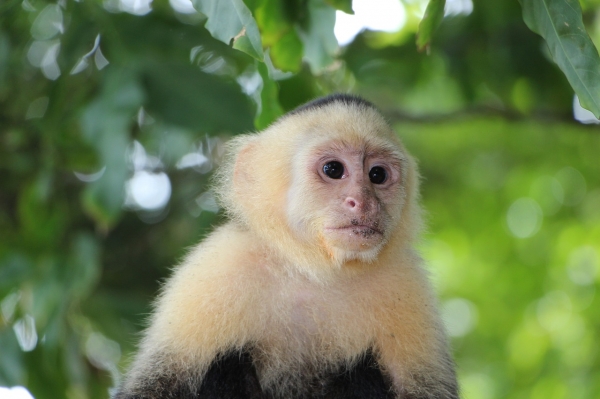The immune performance of wild capuchin monkeys declines when the animals experience higher temperatures, and younger monkeys seem to be particularly vulnerable to heat, according to a University of Michigan study.
U-M anthropology doctoral student Jordan Lucore examined how the immune systems of wild monkeys in Costa Rica were impacted by temperature. Lucore and a team of researchers found that when monkeys experienced about two weeks of warmer temperatures—86 degrees Fahrenheit—their generalized immune system performance declined. This is the part of the immune system that is activated as soon as the body senses a threat.
Their findings, published in Science Advances, were a surprise, Lucore said. Scientists expect endotherm animals—animals that can regulate their own body temperature, like mammals—to be able to protect themselves against fluctuating temperatures because they can maintain a constant body temperature.
“We think this has implications for understanding the effects of climate change because we’re seeing this unlikely relationship between the immune system and temperature in this particular study species, and we’re seeing it at much lower temperatures than expected,” Lucore said. “Eighty six degrees Fahrenheit is not that hot.”
Read more at University of Michigan
Photo Credit: Myagi via Pixabay
Sci/Tech Climate Wildlife Top Stories
